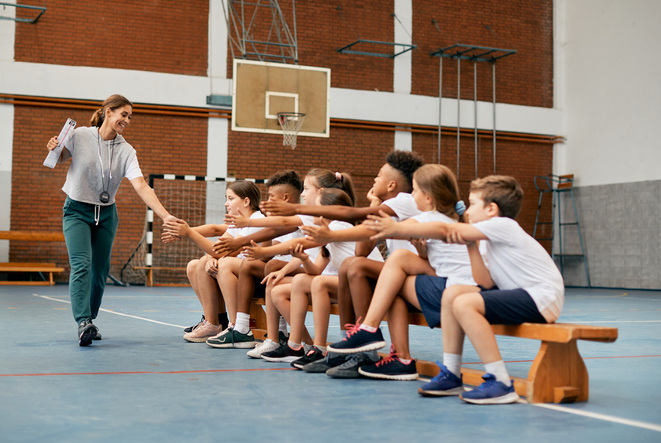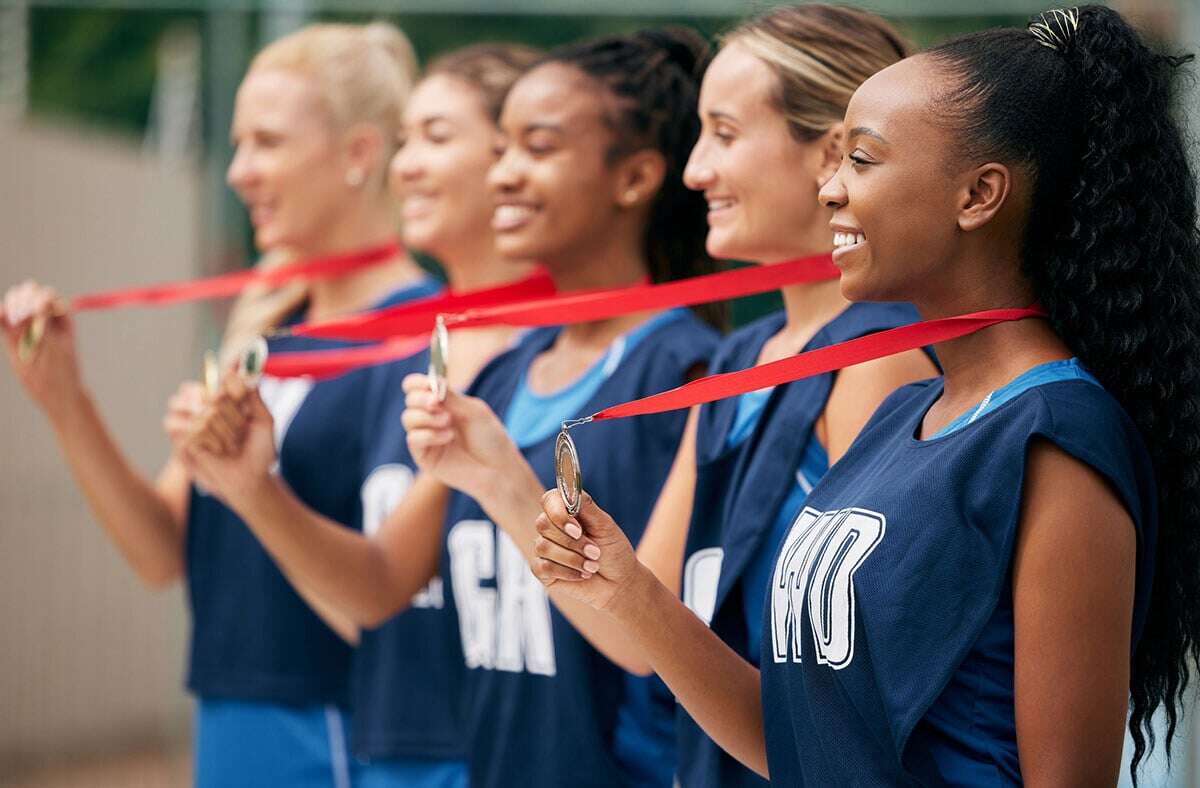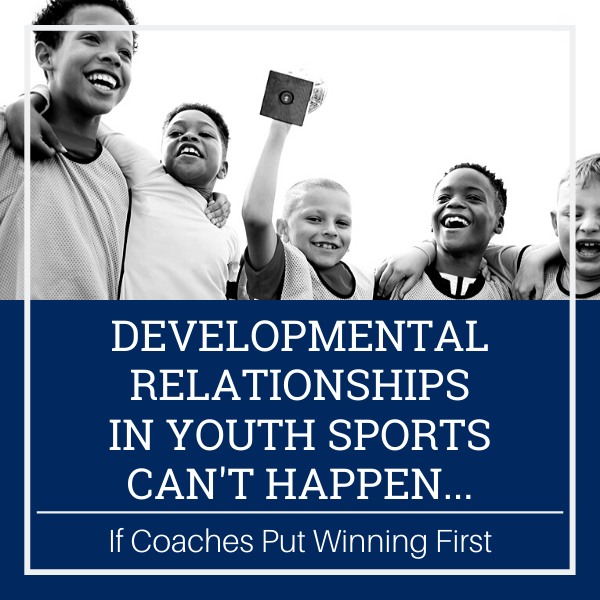Blog
Tips for Youth Sports Coaches: Creating a Culture of Safety, Fun, and Growth
You’re a coach. You want your athletes to earn trophies, medals, and win titles. You want them to reach the highest height their sport allows. But as every great coach discovers, developing a great athlete means nurturing, nurturing the even greater person within. — Edwin Moses
The 3 (Most Important) Jobs of a Youth Sports Coach
The role of a coach in an athlete’s life is a comprehensive one. You wear many, many hats, and you might serve as instructor, teacher, motivator, disciplinarian, substitute parent, social worker, friend, manager, therapist, and even fundraiser. That’s a lot to juggle. But at every practice, every lesson, every match or game, every interaction, you want to be creating meaningful relationships with the young people you are coaching — encouraging them to develop positive values as people and as student-athletes.
With that in mind, it’s important to keep it simple — and keep in mind these 3 priorities for being a good coach:
-
Keep them safe
-
Give them fun
-
Help them grow
Good coaching is nurturing good values on everyone’s inside and helping them to become good habits outside, in action. According to a new Search Institute report and a trusted resource of TrueSport, The 3 Jobs of a Youth Sports Coach, coaches can do that by building a culture that mixes Developmental Relationships and Compete-Learn-Honor approaches to promote safety, fun, and growth simultaneously.
Developmental Relationship Culture
Developmental Relationships focus on five key ways researchers have identified that coaches and other adults can deepen their interactions with young people to cultivate their abilities to shape their own lives, build resilience, and thrive. Coaches in this framework can become even more influential role models and mentors to athletes on and off the playing field. The Developmental Relationships methodology invites coaches and other adults to Express Care (safely and appropriately for their players), Challenge (their athletes’) Growth, Provide Support and Share Power (around game and practice issues), and Expand Possibilities (on and off the field).
Coaches using this approach challenge their athletes to grow, learn, and discover new skills and talents. They can create sustained relationships with their players that are built around these elements of interaction. Additional specific actions (e.g., listen, guide, inspire, navigate) further help build Developmental Relationships. Student-athletes with strong Developmental Relationships in schools and youth programs have better social-emotional competencies, including self-awareness, self-management, social awareness, responsible decision making, and relationship skills.
Compete-Learn-Honor® Culture
Using the Compete-Learn-Honor Approach — created by Search Institute Senior Fellow Peter C. Scales, a developmental psychologist with a 45-year career in positive youth development and 27 seasons coaching boys’ and girls’ high school tennis — helps coaches in all sports to build new mental and emotional habits in their players.
Coaches using Compete-Learn-Honor can assess how much their program defines success, not in terms of wins and losses, but by whether players are Competing (giving 100% effort), Learning (being open, curious, and humble learners), and Honoring the Game (respecting all, making no excuses, and showing high character under stress and adversity), with honor being the foundation for all learning and competitive development.
Within the pillars of Compete-Learn-Honor, coaches can teach and model two dozen specific mental-emotional principles that reflect habits we want student-athletes to develop, including:
-
Love the game more than how you perform.
-
Lose your “self” — humility allows you to learn.
-
Mistakes are necessary to improve.
-
Love the battle, solve the puzzle.
The Compete-Learn-Honor approach has been recommended for both recreational level and elite performance athletes by organizations such as the Positive Coaching Alliance, the National Alliance for Youth Sports, and Way of Champions. A study of middle and high school student-athletes across the country found that those with a strong Compete-Learn-Honor team climate had better social-emotional skills, more confidence in their coach, derived more purpose from playing their sport, and had greater intention to continue playing.
Putting the Approaches Together
So how does building a combined Developmental Relationships and Compete-Learn-Honor culture promote the youth sports goals of safety, fun, and growth? Each of those goals rests on a foundation of respect for self and others, empowerment, and purpose that is larger than self, and it is those three foundations that Developmental Relationships and Compete-Learn-Honor promote.
When those foundations get put into action — when respect, empowerment, and larger purpose are not just words but hallmarks of the way that coaches, and ultimately players, act in the sport setting — then the culture of the team or program itself makes safety, fun, and growth far more likely. And the safety, fun, and growth then reinforce respect, empowerment, and larger purpose, in a repeating loop of positive relationships and experiences.
Positive, Practical Tips and Activities for Coaches
-
“We Build People Up” Poster. A central message about honor that coaches model is, “We build people up—We don’t tear them down.” Hanging up a poster of that message in a prominent place and talking about it is a way to emphasize that the culture of your team is about elevating people, respecting them, building them up — not belittling them, being mean to them, or making fun of them. We build each other up to help each other become the best people we can be. That’s every teammate’s responsibility.
-
The Excuse Box reinforces taking responsibility and respecting self and others. There are no excuses during practices and games (and by extrapolation, life!). Sport should be a mistake-friendly zone, but also an excuse-free zone. Put a big box on your court or playing field and label it “Excuse Box.” Invite your players to write their excuses down, crumple them up, and throw them into the box, or to do it in their minds. If they’re feeling particularly down, players might even stand or sit in the Excuse Box for a bit! They’ll laugh (maybe at themselves), feel better, and come out more ready to take part and take responsibility.
-
The Name Circle is an activity used to reinforce the importance of respect for all, empowerment, and larger purpose. A couple of weeks into the season, lay out a big poster with a large circle on it, with Compete-Learn-Honor written around it. In a kind of commitment ceremony, players come up and write their names around the circle and talk about what The Name Circle symbolizes:
-
-
The history and longevity of the game, and that the game is bigger than any one player.
-
When everybody’s name is around the circle, no one is more important or more valuable than anyone else. Everyone’s wins count the same, everyone hurts the same when they lose.
-
An unbroken (circle of) commitment to be supportive. To be there for each other as a team.
-
Check Your Score Card for Continuous Improvement
If you're a Developmental Relationships and Compete-Learn-Honor coach, you’re constantly trying to build up your players’ sense of agency and autonomy. You’re communicating to them that their growth and their choices are their responsibility. You’re empowering them.
Wondering how you are doing? Are you creating a team culture that supports positive youth development? Take a pulse check to see how you are integrating elements of the Developmental Relationships Framework, and another assessing how well you’re implementing the pillars of Compete-Learn-Honor. Your scores will reflect the team culture you’ve created, how well your messaging is being assimilated by your players, and where there are areas for improvement.
All the messages, actions, exercises, and activities coaches can do to build a Developmental Relationships and Compete-Learn-Honor culture reinforce the three foundations of respect, empowerment, and larger purpose. By building a strong Developmental Relationships and Compete-Learn-Honor culture, coaches can promote these values and end up with a sports culture that keeps everyone safe, gives them fun, and helps them grow into successful adults — as players, perhaps, but more importantly, as thriving people.





